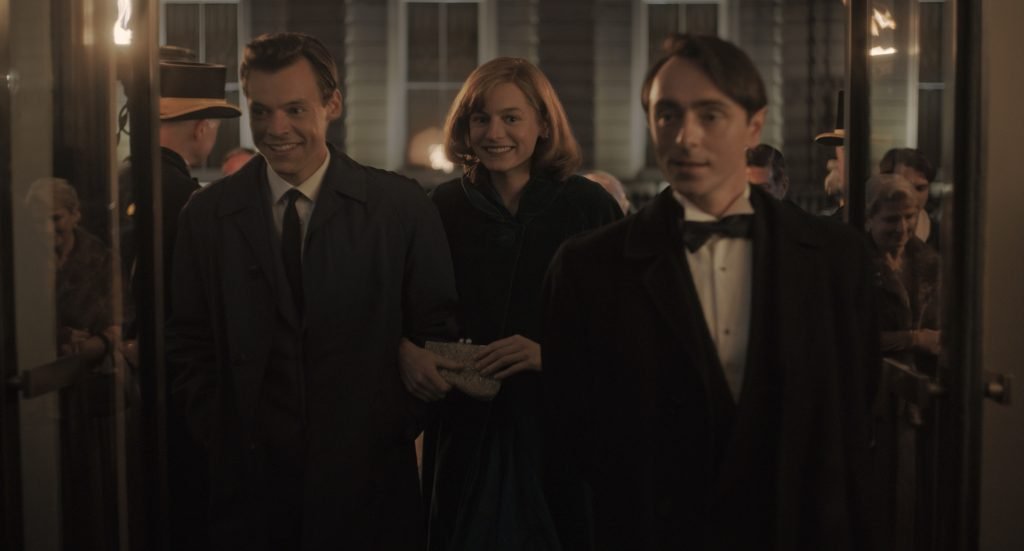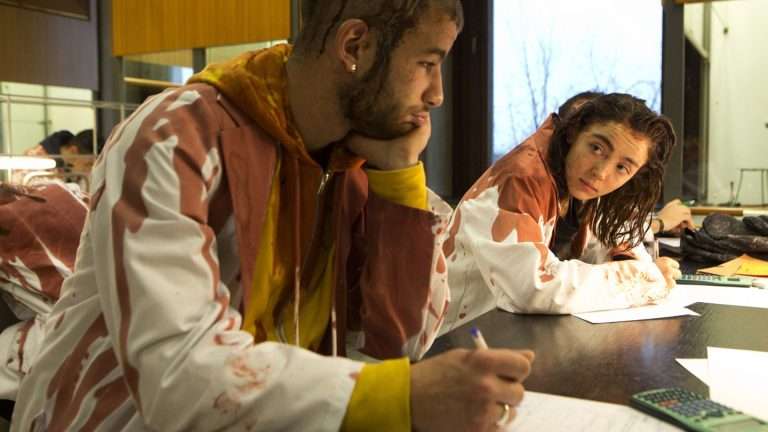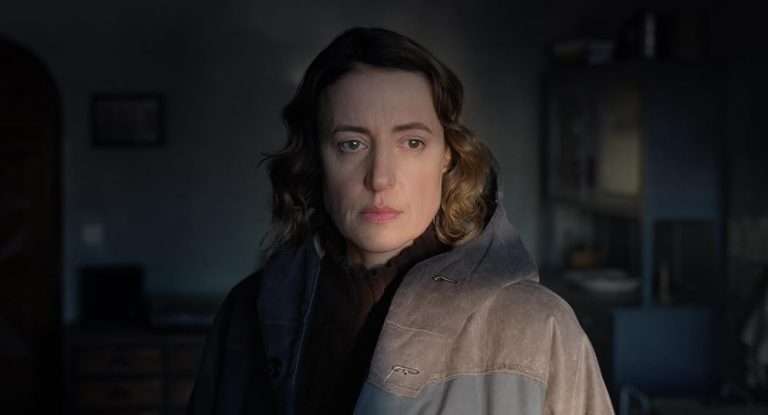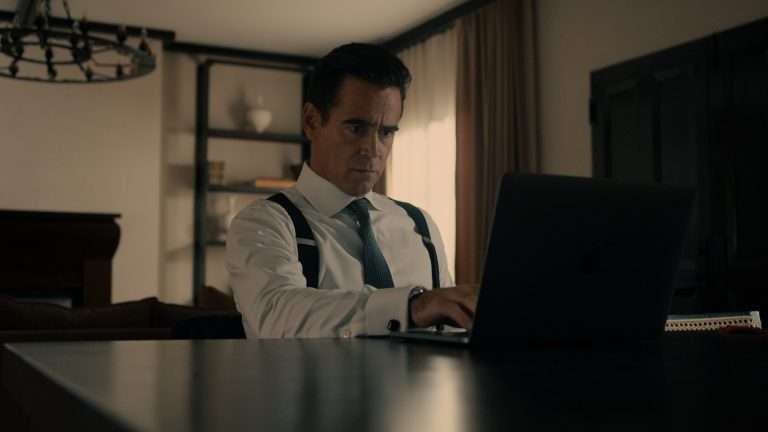My Policeman (2022) Movie Review: Mega-pop star Harry Styles’ first feature film was Christopher Nolan’s “Dunkirk”, where he played a character you almost wouldn’t have noticed if you weren’t looking for him. This year, the actor stars in two films as the central protagonist. If the controversies and media coverage around “Don’t Worry Darling” wasn’t enough, Michael Grandage’s period drama “My Policeman” makes sure skeptics start noticing the deeply hollow nature of films that serve as nothing but dispassionate star vehicles for their main actor.
Set in Brighton in the late 1950s, the movie revolves around a dashing young policeman Tom (Harry Styles), and his girlfriend, Marion (Emma Corrin). The two strike up a friendship with Patrick, a suave museum curator (David Dawson) whom they visit. Tom and Marion then end up marrying each other out of societal conventions (which the movie makes sure you realize). But soon, it’s revealed that the central gay-love story brewing between Tom and Patrick had been going on for quite some time now, eventually leading to a love triangle of sorts. Some four decades later, in 1999, Patrick has been incapacitated by a stroke and moved into the couple’s tidy cottage on the Sussex. What happened over the course of these decades? What regrets are our characters living with, if any?

Like the greatest of British period dramas, “My Policeman,” too, is about the suppressed yearning for something far too buried in the past. But the screenplay, adapted from Bethan Roberts’ 2012 novel of the same name, adds a deep undercurrent of what expectations of heterosexual masculinity come within 50s England, and how the society conflates homosexuality with perverseness.
In fact, the original source material itself fictionalized the real-life relationship between novelist E.M. Forster, his police officer lover, and the policeman’s wife. It baffles me then how stupendously the film gets all its subtext so wrong, where characters blabber out dialogues that translate into zero on-screen chemistry, thus, watering down the potential of its rich and textured setting.
There are more than plenty of verbal clues about the class difference thrown into the script, but none of it renders the visuals into creating enough of a pessimistic mood that results from the oppression inflicted on screen. The idea of a gay man openly expressing his sexuality in 1950s England that could land him in prison (or worse) makes for a powerful ingredient in the recipe for creating an effective melodrama, but it never permeates into anything that we haven’t already seen before handled in a much better way.
Styles’ performance in the film feels too calculated but in all the wrong ways. It’s showy when it doesn’t have to be, and laidback and restrained during scenes that ask more from him. Thus, you can’t help but notice the complexity of the character portrayed on screen subsumed and even superseded by that of celebrity status. What’s worse, is that the film presents its dramatic high points in the form of cheap revelations that don’t adequately grapple with their emotional impact. This naturally makes most of the character redemption arcs – that the film is confident enough for us to take notice of in its closing 10 minutes – seem hollow.
The idea of making your central character cloak their gender and class anxieties in the guise of “betterment” and “order” has been better explored on screen in recent years. But for some reason, I was reminded of the Bollywood film, “Badhaai Do” from earlier this year while watching this one. That film had the urgency and emotional latch that grounded itself into a cultural subtext, even when it wasn’t a period piece. “My Policeman” adds nothing new to its genre, nor does it have enough of a filmmaking personality to make up for the performance of the fledgling young actor at its center.



![Manhunter [1986] Review – An Incredibly Stylized and Atypical Take on the ‘Hannibal Lecter’ Novel](https://79468c92.delivery.rocketcdn.me/wp-content/uploads/2020/02/Manhunter-1986-768x528.jpg)

![The Thin Blue Line [1988] Review – A Thought-Provoking and Formally Innovative Documentary](https://79468c92.delivery.rocketcdn.me/wp-content/uploads/2020/09/The-Thin-Blue-Line-1988-768x432.jpg)
